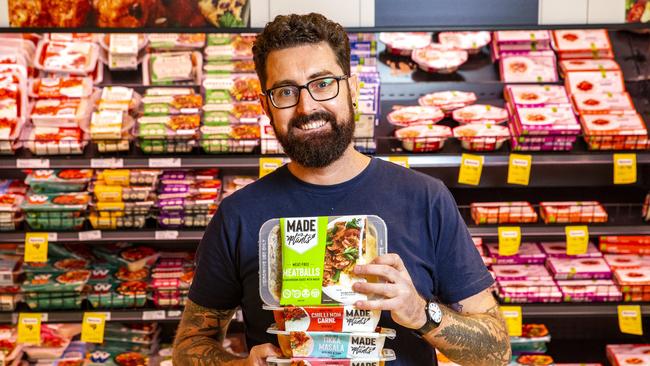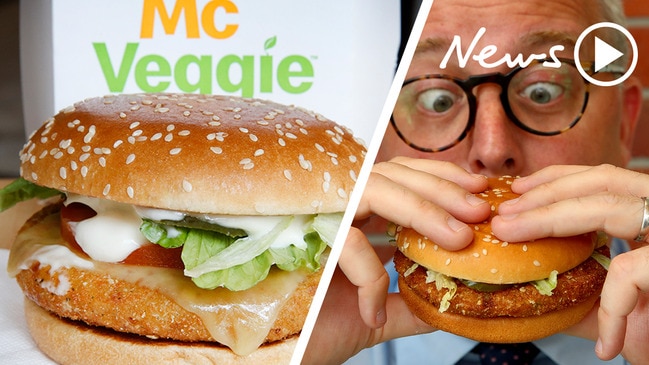Alternative protein supply chain a start-up and supplier opportunity, food futurist says
As alternative proteins go from niche to mainstream, the business opportunity grows in tandem, food futurist Tony Hunter says.

The amount of investor money being poured into alternative proteins globally tripled last calendar year, food futurist Tony Hunter says, with the rapidly growing industry presenting an opportunity to create entire new supply chains.
Mr Hunter, who will be speaking at the Food South Australia Summit: The New World, on June 2, said industry leaders such as Beyond Meat and Impossible Foods had so far been largely vertically integrated.
With the science and production processes at the development stage over the past decade or so, the large, venture capital-backed firms had needed to create or source all of their inputs and technology, Mr Hunter said.
But with the sector growing rapidly and an industry developing, there would be an opportunity for smaller enterprises to become suppliers of technology, services and inputs such as raw materials.
Mr Hunter said there was a general consensus that the current food system was “not fit for purpose’’ for a planet with a growing population, and with a large amount of land given over to producing animal proteins.

“We can’t just clone what we currently do and use that to feed the growing middle classes and the extra couple of billion people, it’s simply not going to happen.
“We use 50 per cent of the land on the planet for agriculture, and we use 70 per cent of that to feed animals in some way.
“Part of the solution from my perspective is technology.’’
Mr Hunter said there was plenty of venture capital money across Asia and globally looking to fund food production ideas, presenting an opportunity for start-ups, and small to medium enterprises could play in the space also.
“In some areas of alternative protein they’re only just starting,’’ he said.
“We tend to think of plant-based, but that is now really established. We’ve got established start-up players in Impossible foods and Beyond Meat, we’ve had Tyson come in, one of the largest food companies in the world, Nestle, the largest food company in the world is releasing alternative protein products.
“In some of the newer technologies there’s plenty of space for start-ups, if we look at areas like algal proteins, mycoprotein from mushrooms, even cultivated meat where we take the cells from animals and grow them in fermenters.
“There’s a lot of companies still in start-up mode or very early mode. There’s a lot of space in there for someone who can solve a particular problem.’’
Mr Hunter draws the analogy between the early personal computer firms who built their product almost from end to end, which then evolved into a model with thousands of suppliers.
“Where we are in some of these technologies is where we were in computers maybe 30-40 years ago.
“We’re finding plant-based is moving out of that quite well now. They’re setting up a whole supply chain. When I talked to Impossible Foods back in 2018 they were complaining about ‘couldn’t get people to move, couldn’t get people to do things fast’.
“They had to do everything themselves if they didn't want to wait six to nine months.’’
That situation had rapidly evolved to the point where there were numerous companies now looking to supply proteins, fats and flavour compounds, which were also starting to specialise within those verticals.
But in the algal and mycoprotein sector there was a still a gap in the market for a new supply chain, Mr Hunter said.
In terms of consumer acceptance, Mr Hunter said younger people were more comfortable withy having a technological backing for their food supply.
Functional foods, which not only nourish but deliver another function such as heightened concentration, were also increasingly popular in line with the wellness trend, Mr Hunter said.
“Go back 30-40 years ago, particularly in The West, people ate for fuel,’’ he said.
“We’re now looking at food not just as fuel, but looking at the extra value it brings. Wellness has gone mainstream.”
Personalisation of foods would also be huge, Mr Hunter said, with people wanting to have their food tailored to their lifestyle and how their body reacts to different foods.
Other speakers at the conference include Heather Mills, the UK-based animal rights campaigner and owner of Vbites, which bills itself as the largest plant-based food manufacturers in Europe.
The company produces more than 140 products including many faux-meat products.




To join the conversation, please log in. Don't have an account? Register
Join the conversation, you are commenting as Logout